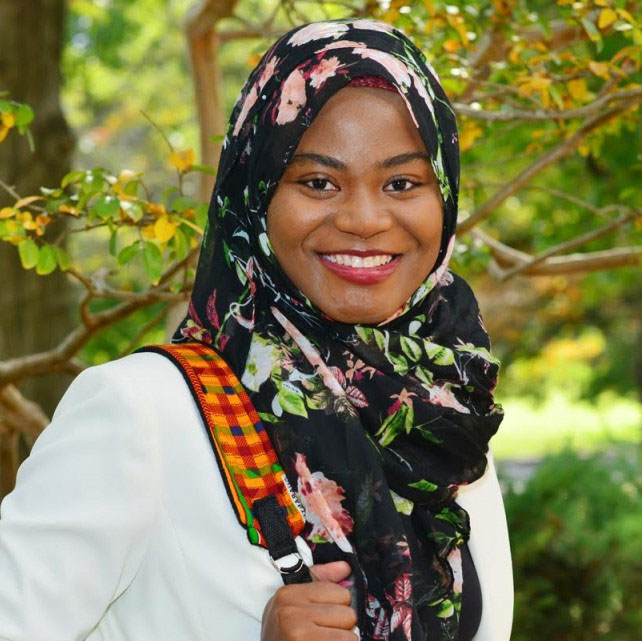
[There is] fluidity between what we’re learning and what’s happening in the real world.
Hareesa originally came to the University of Maryland (UMD) as a bioengineering major but switched to civil and environmental engineering, where she is pursuing the geotechnical and structural engineering track, in her first semester. A first-generation college student from a Ghanaian family, she sees civil engineering as an “avenue to help other people," and made the switch to enable her to “pursue something that would allow me to give back to communities [in Ghana], and in Africa as a whole, and in the developing world.”
Hareesa, who writes poetry in her free time, has interned with three organizations since starting at UMD: the Prince George’s County Department of the Environment, Banneker Ventures, and the Maryland State Highway Administration. One of the things she says she enjoys most about being a civil and environmental engineering major is the way her coursework relates to her internships. She can apply what she learned in class to her internships, and vice versa, because there’s such a “fluidity between what we’re learning and what’s happening in the real world.”
The bonds Hareesa has formed with professors is also high on the list of why she enjoys being in the Department of Civil and Environmental Engineering. The department, she says, excels at providing "super-qualified professors who also make time for their students," which has given her confidence in her work.
She also appreciates the opportunities she’s had in the department to network with professionals in the field and attend events like career fairs, as well as the financial support the department’s donors and sponsors make available.
“The department takes care of its students,” she says.
Hareesa knew when beginning her studies in civil engineering that it was a “white male-dominated field,” and says that the lack of diversity in many of her courses has been a challenge for her. At the same time, she feels the department has helped her realize that “no matter what my representation is, I have what it takes to aspire and succeed.” She is appreciative of the leadership opportunities and mentorships that the Center for Minorities in Science and Engineering has provided her, and hopes that the department will also encourage increased conversations about diversity.
When she graduates, Hareesa hopes to pursue her Master’s while working for a general contractor. Her long-term aim is to start her own projects in Ghana before expanding to other developing regions. She hopes to continue to pursue civil engineering as a way to give back to her local and global communities.
Top